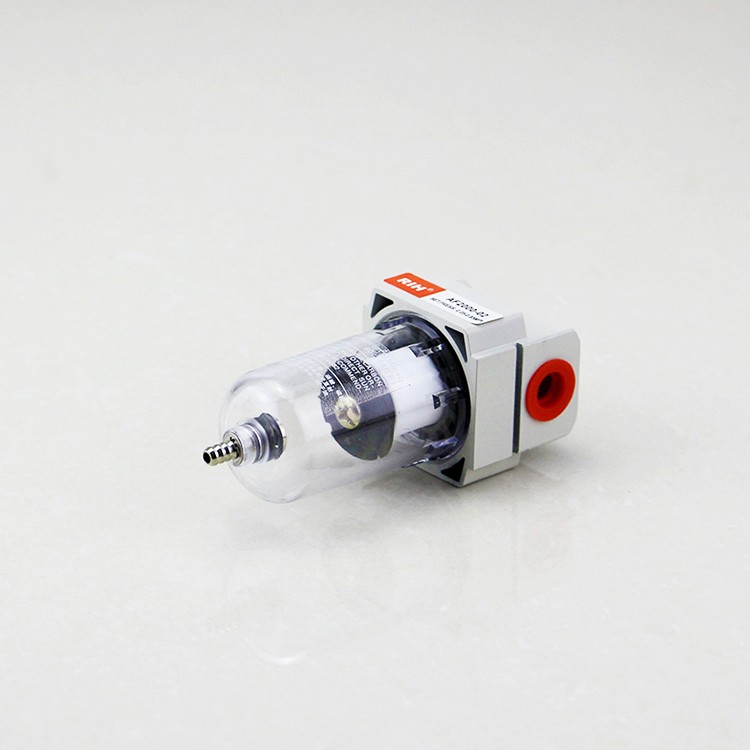Industrial Oil Filters for Air Compressors
The Importance of Air Treatment
Air treatment is a critical process that involves modifying the condition of air to meet specific requirements. It's essential for various reasons, including:
- Health and Safety: Poor indoor air quality can lead to numerous health issues, such as allergies, respiratory problems, and reduced productivity. Air treatment systems help remove contaminants, allergens, and pollutants from the air, creating a healthier environment.
- Product Quality: In industries like pharmaceuticals, electronics, and food processing, maintaining a clean air environment is crucial for product quality. Contaminants in the air can lead to product defects, contamination, and even product recalls.
- Equipment Protection: Many industrial processes rely on sensitive equipment. Air treatment helps to prevent corrosion, reduce wear and tear, and extend the lifespan of equipment by removing moisture, particulates, and corrosive substances from the air.
- Energy Efficiency: By controlling factors like humidity and temperature, air treatment systems can optimize the efficiency of various processes, leading to energy savings.
- Regulatory Compliance: Numerous industries have specific regulations regarding indoor air quality. Air treatment systems help businesses comply with these standards.

How to remove water from compressed air
To effectively remove water from compressed air, a combination of methods is often employed:
1. Aftercoolers
- Function: Reduce the temperature of compressed air, causing water vapor to condense.
- Types: Air-to-air or water-to-air.
2. Separators
- Function: Physically remove liquid water and oil from compressed air.
- Types: Cyclonic separators, coalescing filters, and centrifugal separators.
3. Desiccants
- Function: Absorb water vapor from compressed air.
- Types: Silica gel, alumina, and molecular sieves.
4. Refrigerant Dryers
- Function: Cool compressed air to a dew point below ambient temperature, causing water to condense.
- Types: Heatless and heated.
5. Membrane Dryers
- Function: Use a semi-permeable membrane to selectively remove water vapor from compressed air.
- Advantages: Low energy consumption, low maintenance.
6. Combination Systems
- Function: Combine multiple methods for optimal water removal.
- Example: Aftercooler + separator + desiccant dryer.
How do you clean the oil out of an air compressor tank?
. Safety First:
- Disconnect power: Ensure the compressor is completely turned off and unplugged.
- Release pressure: Release any residual pressure by opening the drain valve.
2. Drain and Flush:
- Drain oil: Drain the old oil from the compressor's oil drain valve into a suitable container.
- Flush with solvent: Fill the tank with a cleaning solvent (e.g., mineral spirits, degreaser) and let it sit for a period of time (refer to the solvent's instructions).
- Drain solvent: Drain the solvent completely.
3. Scrub and Rinse:
- Scrub interior: Use a brush or scraper to remove any remaining oil or debris from the tank's interior walls.
- Rinse thoroughly: Rinse the tank with clean water to remove any residual solvent.
4. Dry Completely:
- Air dry: Allow the tank to air dry completely before reassembling.
- Consider using a heat gun: For faster drying, a heat gun can be used, but be cautious not to damage the tank.
5. Reassemble and Inspect:
- Replace filters and gaskets: Ensure all filters and gaskets are clean or replaced as needed.
- Inspect for damage: Check the tank for any signs of corrosion, cracks, or other damage.
- Reassemble: Reassemble the compressor according to the manufacturer's instructions.
6. Run a test cycle:
- Monitor for leaks: Run the compressor for a short period and check for any leaks.
- Inspect oil quality: Check the oil level and quality after the test cycle.
Customized oil and water separator air filters
Yueqing Right Pneumatic Co., Ltd., a leading manufacturer of pneumatic and electronic products, offers a wide range of customized air filters, including oil and water separators. With their expertise in air treatment solutions and a commitment to customer satisfaction, RIH can tailor filters to meet specific requirements and enhance the performance of various industrial applications.
Key Benefits of Customized Oil and Water Separator Air Filters:
- Optimized Performance: Customized filters ensure precise filtration and separation of oil and water, preventing contamination and improving system efficiency.
- Enhanced Equipment Protection: By removing harmful contaminants, these filters safeguard critical equipment from damage and premature wear.
- Reduced Maintenance Costs: Tailored filters can extend equipment life, reduce downtime, and lower maintenance expenses.
- Improved Product Quality: In industries where product purity is essential, customized filters help maintain high-quality standards.
- Compliance with Regulations: RIH can design filters that meet industry-specific regulations and standards.
Customization Options:
- Filter Media: RIH offers a variety of filter media options, including coalescing, particulate, and activated carbon, to address different contaminant types and concentrations.
- Filter Housing: Custom housings can be designed to fit specific installation requirements and space constraints.
- Flow Rate: Filters can be engineered to handle varying flow rates, ensuring optimal performance in different applications.
- Pressure Rating: RIH can provide filters that withstand high-pressure environments.
- Operating Temperature: Filters can be designed to operate in a wide range of temperature conditions.
If you require customized air filters to improve the efficiency, reliability, and performance of your pneumatic systems, Yueqing Right Pneumatic Co., Ltd. is the ideal partner.

